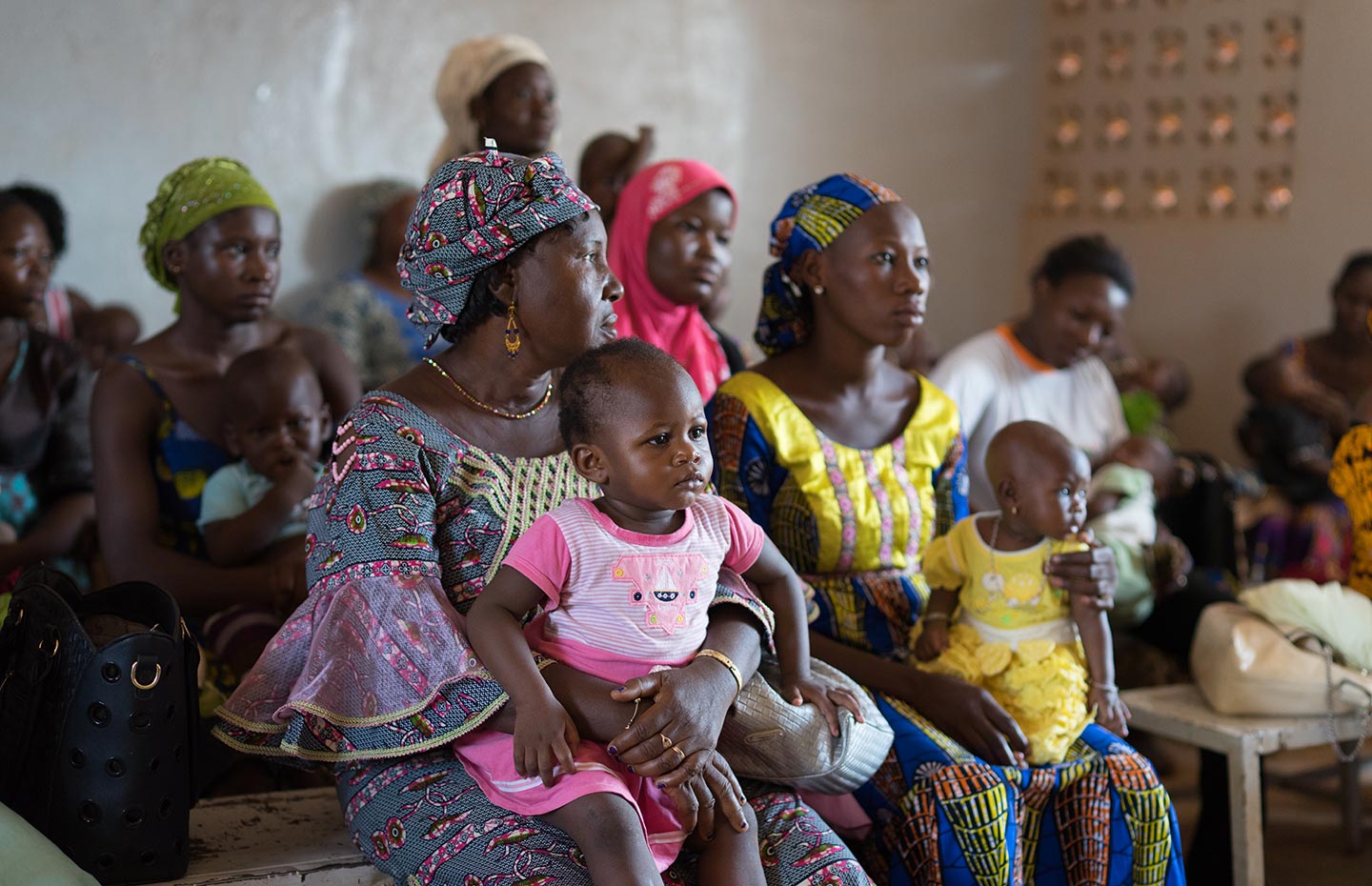Gavi’s impact
By end 2023, Gavi-supported meningococcal A vaccination campaigns had reached more than 339 million children and young adults in 24 countries in Africa’s ‘meningitis belt’; and more than 62 million children in 15 countries had been immunised through routine programmes. By end 2024, the Gavi-funded multivalent meningococcal vaccine emergency stockpile had been accessed 68 times by 16 countries, with more than 34.4 million doses shipped for outbreak response.
In May 2023, Guinea-Bissau introduced meningococcal A vaccine into the routine immunisation programme, followed by a catch-up campaign in September targeting children aged one to seven years who were missed since the previous preventive mass vaccination campaign in 2016. There are still 11 countries that have yet to introduce the vaccine into the routine immunisation programme; 9 of those countries conducted a preventive mass vaccination campaign more than five years ago. Further delaying introduction of meningococcal A vaccine will result in loss of herd protection and could create pockets of susceptible individuals, leading to a high risk of catastrophic resurgence of Neisseria meningitidis A epidemics.
In response to an outbreak that began in 2022, Niger implemented an emergency vaccination campaign with the trivalent ACW meningococcal polysaccharide vaccine in early 2023 targeting more than 370,000 people aged 2–29 years across four health districts. In March 2023, Nigeria launched an emergency campaign with ACYW conjugate vaccine targeting more than 194,000 people aged 1–29 years in Jigawa State.
The issue
Meningococcal meningitis is most prevalent in Africa’s ‘meningitis belt’, which stretches across 26 countries in Africa – from Senegal in the West to Ethiopia in the East – with an at-risk population of about 500 million, where epidemics can occur in the dry season (December–June). Those at highest risk of infection are infants, children and young adults. Meningitis can kill in less than 24 hours, and the disease leaves one in five surviving the acute episode with long-lasting disabilities such as hearing loss, seizures, paralysis, cognitive impairments, limb amputation or skin scarring. Meningococcal meningitis has a significant social and economic impact. Gavi-supported meningococcal A vaccination campaigns and routine introductions have virtually eliminated meningitis A – which speaks to the concerted efforts of global partners, donors and most importantly communities in affected countries who are driving effective vaccination programmes. Other meningococcal strains (i.e. mainly C, W and X) continue to cause devastating epidemics. Meningococcal vaccination represents a key component of the Defeating meningitis by 2030 global road map – which aims to eliminate bacterial meningitis epidemics by 2030.
Gavi does not yet support meningococcal diagnostics; however, work is under way to do this in order to help improve meningococcal vaccine targeting and outbreak detection. More details will be available on the forthcoming Gavi diagnostics webpage.
Gavi’s response
In the 26 countries of the meningitis belt, Gavi currently supports:
- Meningococcal A vaccine: All countries are eligible to introduce meningococcal A vaccine into routine immunisation and to conduct a preventive mass vaccination campaign targeting children and young adults aged 1–29 years. For countries that have already previously conducted a mass preventative campaign but not yet introduced meningococcal A vaccine into routine immunisation, countries are supported to conduct a catch-up campaign for missed cohorts alongside the routine immunisation launch.
- Multivalent meningococcal conjugate vaccine (MMCV): Following the 2023 prequalification of the first pentavalent meningococcal ACYWX vaccine to protect against the five predominant serogroups of meningococcal meningitis in Africa – which WHO recommended for use in the meningitis belt – Gavi opened a funding window for all countries in the meningitis belt to switch from meningococcal A vaccine to MMCV for routine immunisation1. High-risk countries (as classified by risk assessments) are also supported to conduct a mass vaccination campaign in populations aged 2–19 years.
- Meningococcal vaccines emergency stockpile: To control outbreaks,Gavi funds the meningococcal vaccines stockpile, which is now primarily comprised of MMCV (described above). The International Coordinating Group (ICG) on Vaccine Provision, hosted by the World Health Organization (WHO), coordinates allocation of doses from the stockpile. Gavi also supports operational funds for implementation of outbreak response activities.
- Surveillance: Understanding circulation of meningococcal serogroups is valuable to inform appropriate vaccination targeting strategies and timely outbreak response. Gavi is working closely with WHO to support strengthening meningitis surveillance across the belt. Countries can access operational funds for surveillance through Gavi health system strengthening (HSS) support.
- Diagnostics: Gavi is working towards supporting procurement of diagnostics for meningitis surveillance and outbreak detection. Currently, Gavi is working through Alliance partners to ensure fit-for-purpose tests are available by publishing target product profiles, market shaping roadmaps and supporting product prequalification (or equivalent).
From other sites
1. In exceptional cases, countries that have not yet introduced meningococcal A vaccine in their routine schedule may apply for routine introduction of MMCV when an evidence-based decision justifies this choice.













